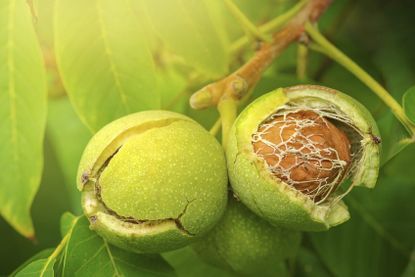Nut Trees
Grow your own nut trees! Learn how to do it, which ones grow well in your zone and how to keep them healthy and productive. There's nothing quite a delectable as cracking open homegrown nuts to embellish your discerning menu or add to your favorite dessert.
-
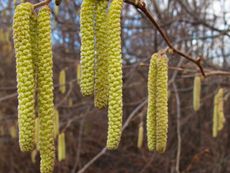
Hazelnut Tree Pollination – Do Hazelnut Trees Need To Cross Pollinate
How do hazelnut trees get pollinated? The answer is a little weird. Click here to learn all about this strange process.
By Amy Grant
-
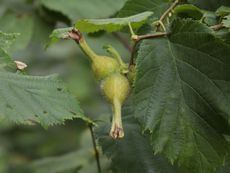
How To Grow A Native Beaked Hazelnut Bush
Try growing one of these unique filberts called beaked hazelnuts. Your squirrels will love them, and so will you.
By Mary Ellen Ellis
-
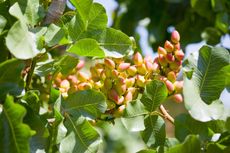
Pistachio Nut Trees: Tips For Growing Pistachio Trees
Pistachio nuts are quite popular these days but can be somewhat costly. The following information will provide tips for growing pistachio nut trees of your very own. Click this article to learn more.
By Amy Grant
-
Pecan Twig Dieback Symptoms: How to Treat Pecan Twig Dieback Disease
As with most fruit and nut trees, there are some fungal issues that may affect plantings, like twig dieback of pecan. Awareness of these issues will help to not only manage their symptoms but also encourage better overall tree health. Learn more here.
By Tonya Barnett
-
Pecan Downy Spot Control – How To Treat Downy Spot Of Pecans
Downy spot of pecans is a fungal disease affects the overall vigor of the tree, thus pecan downy spot control is integral to its health. The following article contains information on pecan downy spot symptoms and tips for treating a pecan tree with downy spot.
By Amy Grant
-
Pecan Vein Spot Control – Learn About Pecan Vein Spot Disease
Pecan vein spot disease is caused by the fungus Gnomonia nerviseda. The disease does not appear on shoots or nuts, only foliage and only in pecan trees. The good news is that the disease is infrequent, causes little crop loss and can be prevented. This article will help.
By Bonnie L. Grant
-
Pecan Articularia Leaf Mold Treatment: Controlling Leaf Mold In Pecan Trees
Although articularia leaf mold of pecans is a relatively minor problem, it can still be a major thorn in the side of home gardeners. Fortunately, leaf mold in pecan trees is easy to control. Learn more about this issue and how to manage it here.
By Mary H. Dyer
-
Pecan Nematospora – Tips For Treating Pecan Kernel Discoloration
One of the most common factors of poor nut production in pecan trees is the result of stressed trees. Events like cold temps, high humidity, and even drought are all responsible for the potential loss of pecan harvests. Pecan nematospora is another issue. Learn more here.
By Tonya Barnett
-
Shuck Dieback Of Pecan Trees: Learn About Pecan Shuck Decline Disease
Pecans are prized in the South, and if you have one of these trees in your yard, you likely enjoy the shade of this regal giant. You may also enjoy eating the nuts, but if your trees are hit with pecan shuck decline and dieback, you could lose your harvest. Learn more here.
By Mary Ellen Ellis
-
Treating Pecan Leaf Blotch – Learn About Leaf Blotch Of Pecans
Leaf blotch is generally a fairly minor concern. Even so, treating pecan leaf blotch is an important step to maintaining the overall health of the tree. The following pecan leaf blotch info discusses the symptoms of the disease and pecan leaf blotch control.
By Amy Grant
-
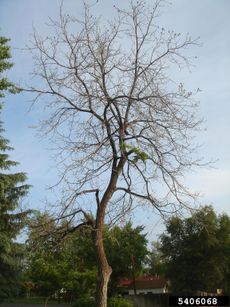
Is My Black Walnut Dead: How To Tell If A Black Walnut Is Dead
Black walnuts are subject to diseases and pests that can kill them at any age. Click here and learn how to tell if a black walnut tree is dead or dying.
By Teo Spengler
-
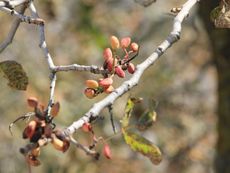
Pistachio Problems In The Home Garden
Growing pistachios at home can be challenging. Here are some common pistachio tree issues.
By Laura Miller
-
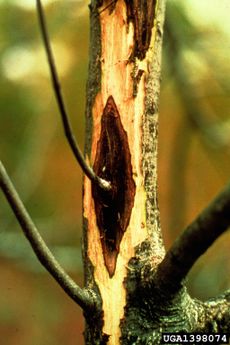
Canker In Butternut Trees: Learn How To Treat Butternut Canker
Butternut trees are treasures that add grace and beauty to the landscape, but butternut canker disease ruins the appearance of the tree, and it is almost always fatal. Find out about preventing and treating butternut canker in this article.
By Jackie Carroll
-
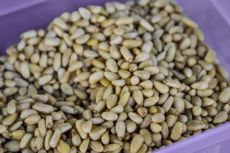
Pinon Nut Information – Where Do Pinon Nuts Come From
What are pinon nuts and where do pinon nuts come from? The nuts found in the cones of pinon trees are actually seeds, which are highly valued not only by people but by birds and other wildlife. Click here for more pinon nut information and uses.
By Mary H. Dyer
-
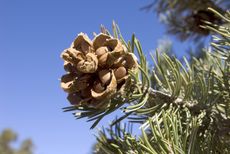
Where Do Pine Nuts Come From: Learn About Growing Pine Nut Trees
Pine nuts are a staple in many indigenous cuisines and have migrated to the United States as a part of our family table. Where do pine nuts come from? Learn more about these nuts and how to grow them in this article.
By Bonnie L. Grant
-
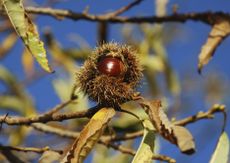
Harvesting Chestnut Trees: When And How To Harvest Chestnuts
Chestnut trees are attractive trees that prefer chilly winters and warm summers. The trees produce generous quantities of flavorful, nutrition-rich nuts inside spiny hulls, commonly known as burs. Want to know how to harvest chestnuts? Click here.
By Mary H. Dyer
-
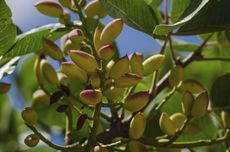
Harvesting Pistachio Trees: When And How To Harvest Pistachios
Pistachio trees thrive in climates with hot summers and relatively cool winters. Although we think of pistachios as nuts, the delicious, nutritious treats are actually seeds. If you're wondering how to harvest pistachios, it isn't difficult. Click here to find out.
By Mary H. Dyer
